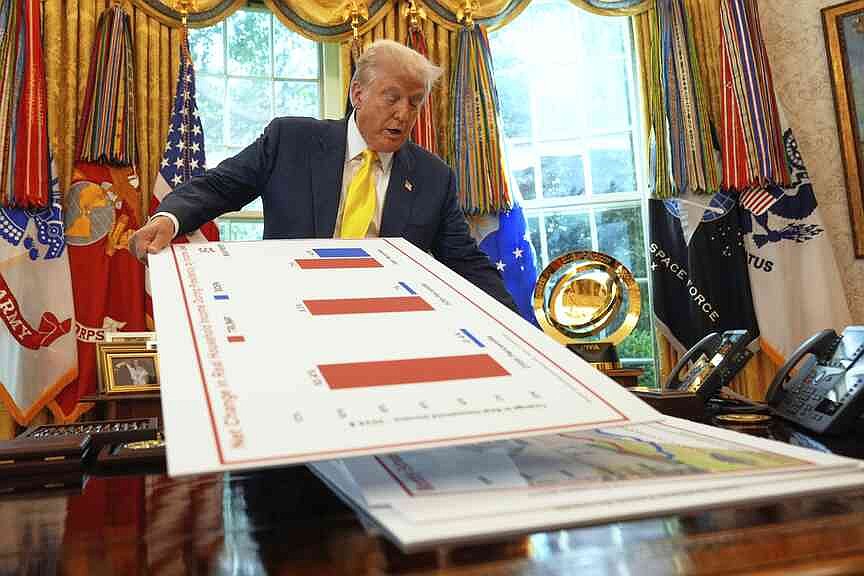The Economic Landscape for Black Americans in 2025
At a pivotal rally before the 2024 election, former President Donald Trump issued a stark warning: Black Americans were experiencing significant job losses, and without his leadership, the situation would only deteriorate. Fast forward to 2025, and the economic landscape for Black Americans seems more precarious than ever, with troubling data illuminating a widening racial wealth gap.
The Current Economic Challenges
As of 2025, the Black unemployment rate has surged to 7.5%, a notable increase from 6.2% just a year prior—the highest level since October 2021. This uptick in unemployment is compounded by a troubling trend in homeownership, which has plummeted to its lowest point since 2021. According to a recent analysis by Redfin, the median Black household income has also declined by 3.3%, now at approximately $56,020—about $36,000 less than the median income of white households. Such statistics paint a grim picture of economic stagnation and regression for Black Americans.
Political Implications of Economic Disparities
This disheartening trend poses significant political risks for President Trump and raises critical questions about the broader implications for the nation. Notably, job losses within the Black community often serve as an early warning sign for wider layoffs affecting other demographic groups. Angela Hanks, a former official at the Consumer Financial Protection Bureau, emphasizes that Black Americans frequently occupy the role of a “canary in the coal mine” when it comes to economic downturns.
The Trump administration has attempted to rebut claims that these economic downturns began under former President Joe Biden. They argue that policies promoting “diversity, equity, and inclusion” have failed to yield tangible economic benefits. White House spokesman Kush Desai articulated this stance, attributing the relative decline in Black wealth to Biden’s “disastrous economic agenda.”
The Frustration Among Black Voters
Amid these struggles, many Black voters are reassessing their political engagement. Josh Garrett, a young voter in Florida, expressed his frustration about the administration’s layoffs and its perceived alignment with elite interests, stating, “I don’t understand how you could be for the American people and have Americans lose their jobs when they have families, have bills.” This sentiment echoes a broader discontent among Black voters, many of whom feel abandoned by the current administration.
As the economic outlook for Black Americans deteriorates, the wealth of white households appears to be holding steady, largely buoyed by the stock market. Hanks warns that the chaotic effects of the current administration’s policies disproportionately affect the most vulnerable populations, potentially leading to broader economic instability.
Employment and Layoff Trends
In terms of employment, federal layoffs have disproportionately impacted Black Americans, who represent a substantial portion of the government workforce. While the administration promotes tax cuts and tariffs as beneficial for Black communities, evidence supporting these claims remains scant. As dissatisfaction grows, the Trump administration’s proposals—such as deploying the National Guard to urban areas led by Black mayors—raise concerns about governance and accessibility to resources for Black populations.
Baltimore Mayor Brandon Scott articulated these frustrations, highlighting the underlying messages conveyed by these proposals: that Black communities are incapable of self-governance, an assumption he decries.
The Relationship Between Economy and Crime
The rising economic challenges also raise alarms about potential social repercussions, including crime, which could reverse progress made in reducing homicide rates in urban areas. The connection between economic hardship and crime is well-documented, prompting concerns among local leaders about the future safety and stability of their communities.
Evolving Voting Patterns
Historically, Black Americans have formed the backbone of the Democratic Party, yet trends indicate a slight shift towards the Republican camp, with Trump gaining 16% of the Black vote in 2024—double his 2020 share. This change stems from rising frustrations over economic issues, including inflation and job security, as over a third of Black voters identified the economy and jobs as the most pressing issues in the recent election.
Polling from the Associated Press-NORC Center reveals that 52% of Black adults cite financial stresses as a major concern in their lives, higher than the national average. The political implications are significant, as these trends could signal a shifting landscape in future elections.
Family Structure and Economic Stability
Conservative commentators have suggested that family structure plays a pivotal role in financial stability, positing that the prevalence of single-parent households among Black families contributes to economic vulnerability. This notion frames economic challenges within a broader societal context, suggesting that family dynamics and financial independence are interconnected.
The Path Forward in a Complex Political Climate
While Trump aims to solidify his mandate to improve the economy for middle-class Americans—including Black voters—the current landscape suggests a divergence from those promises. As voters witness a focus on immigration policies and a perceived stifling of Black political empowerment, it raises questions about the sustainability of Republican support within this influential demographic.
In summary, the economic challenges facing Black Americans in 2025 highlight an increasingly complex political and social landscape. As frustrations mount and disparities widen, the electoral outlook for both parties may hinge on their ability to effectively address the pressing needs of this vital segment of the electorate.



